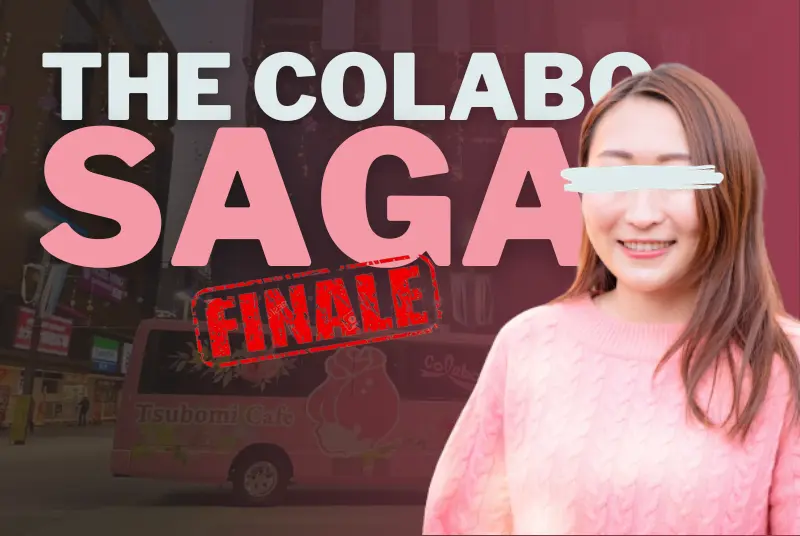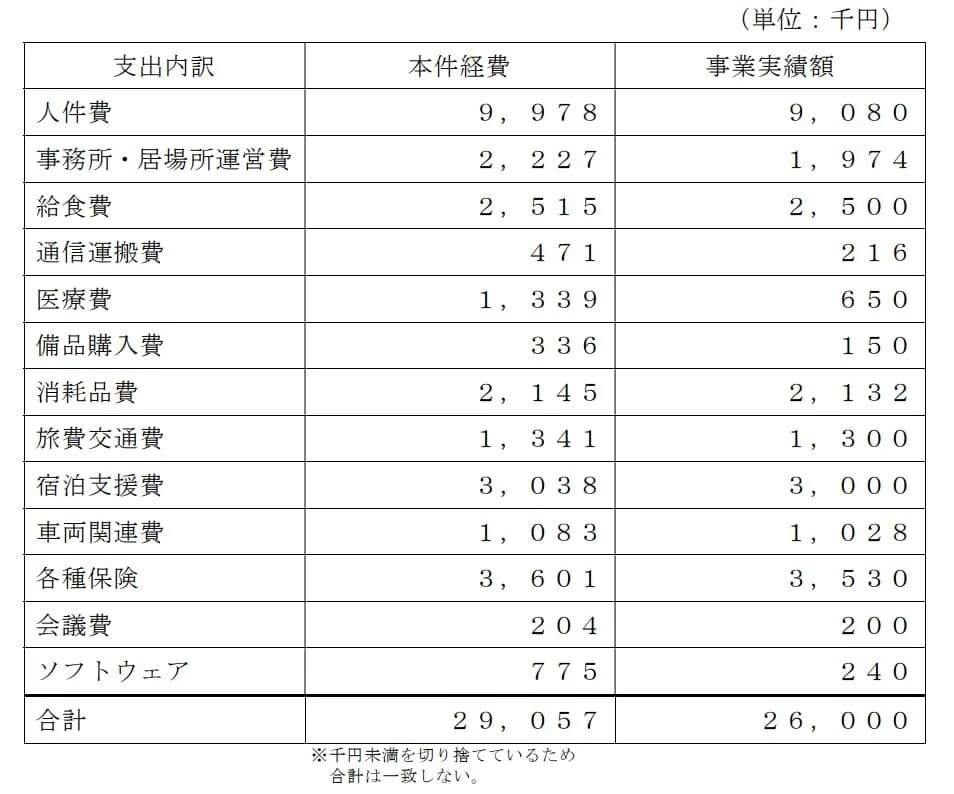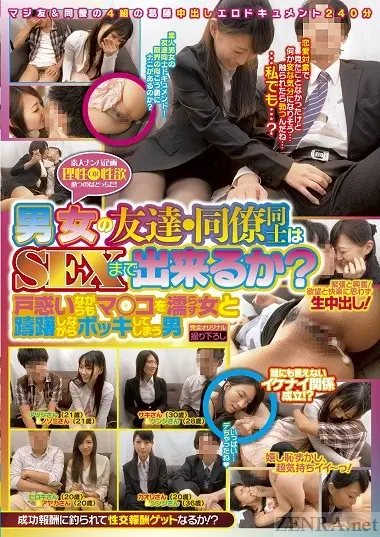The Colabo Saga - Judgement & Aftermath

I assume most of you have already delved into the nitty gritty of this affair, so I will spare you the details and cut to the chase. In short, an Internet otaku named Akane Himasora who achieved his wealth from Japan’s billion dolllar gaming industry, obtained documents related to the NPO Colabo by filing a disclosure request with the Tokyo Metropolitan Government, and claimed on his Twitter and YouTube channel of having suspected 'accounting irregularities' in Colabo's activity reports. This triggered a huge uproar that engulfed the Internet world like a bee stinging its hive.
For the unversed, Colabo was commissioned by the Tokyo Metropolitan Government to operate the "Tokyo Women Support Project" (hereinafter referred to as the 'Support Project'), which provides shelter, a safe place, and opportunities for self-support to women in their student years who are unable to stay at home due to erratic circumstances.
To say the least, this internet otaku did a commendable job in unearthing the discrepancies and supposed frauds (that we’ve covered extensively in the past). Apparently, he found out that the report to the Tokyo Metropolitan Government and Colabo's own annual report when compared had a distinct mismatch, and was suspected of accounting irregularities.
Now one might be wondering as to what are the accounting irregularities that I keep repeating. Here’s a rundown, as per his findings hotel expenses deviated from the activity report’s unit price and actual figures, and the difference was improperly received. Tire, gasoline, and meeting expenses were recorded in amounts that exceeded socially accepted norms and were over-reported. The amount of communication and transportation expenses was less than the total of the breakdown of major amounts explained in the report. Legal welfare expenses were inconsistent and overstated. Medical expenses were being reimbursed through kickbacks. The number of people consulted and the number of people under long-term protection were inconsistent.
Himasora quotes, “Due to the above alleged accounting irregularities, we requested the TMG to conduct an audit of the support project Colabo, which is entrusted with the project.”
Colabo's Accounting Practices
Before we move on to the outcome of the audit, let us just do a quick rundown of Colabo’s accounting practices. As a general incorporated association, Colabo is subject to interest corporation accounting standards, and unlike a joint stock company or sole proprietorship, it has its own set of rules. One of the major rules that a corporation like Colabo has to follow is that each of it’s business' is classified into different accounting categories.
In layman’s terms, it means that if a corporation like Colabo is engaged with businesses of different nature and purposes, it must have separate accounts for each of those businesses. For instance, let us consider Colabo being engaged in two businesses, A and B, the expenses of each business must be separated into A and B accounts, and expenses incurred for A business cannot be transferred to that of business B. (This is not clearly stated in the annual report that Colabo publishes to the outside world, but it can be seen that the classification is generally appropriate in accounting software, etc., as there are no particular indications that this is the case.)
Back to Colabo, in addition to the support projects commissioned by the Tokyo Metropolitan Government, Colabo has been continuing its own side quests for some time, and the expenses for the support projects are only a part of Colabo's expenses, so to speak. We’ll delve into more in the later sections. For now, let us jump right into the nitty gritty of the first audit against Yumeno's firm.
First Audit Judgement
On November 29 2022, before the results came out, Yumeno’s legal team launched a counterattack of some sort to sue our otaku but he dismissed that it was mere enemy threat. “It was my first experience of requesting information disclosure and requesting a resident audit. The first resident audit request was rejected as lack of more evidence However, I rewrote the document and resubmitted it and made it work.” quotes Himasora.
On January 4, 2023 The Tokyo Metropolitan Government's audit and inspection commissioners issued a statement that it advised the government to re-examine expenditures for a project to support female victims, following a resident audit request claiming the involvement of inflating expense.
The resident audit request was filed against general incorporated association Colabo, and demanded the return of commission fees and other payments on the grounds that it received payments illicitly. The audit commissioners demanded that the government examine the usage of expenses by the end of February and request the return of any overpayments that come to light, among other measures. Meanwhile, the audit commissioners concluded the illegitimacy of the claim that hotel accommodation expenses, vehicle-related costs, travel and transportation fares, medical costs and other expenses were inflated.
Colaboの不正会計疑惑について行った住民監査請求の結果全文です
— 暇空茜 (@himasoraakane) December 29, 2022
ざっくりまとめ
2月28日までに
・遡って調べろ、不正があったら返金とかさせろ
・区分守らせろ
・こんなクソ報告書で通すな
・按分しろ
・他に流用すんな
・宿泊、給食費に上限つけろ
・ちゃんと指導しろ pic.twitter.com/lNW80SbO2G
Notify Me of New Blog Posts
Get notified when we publish new blog posts:
Colabo started off as project to promote the self-reliance of victims, runaways and others who were allegedly pushed into the business of female high schoolers entertaining male customers, as well as pornographic video appearances. Through outreach efforts, including night time patrols, the project aims to prevent abuse cases and secure a temporary refuge for the girls. The Tokyo Metropolitan Government had entrusted the project with Colabo and other non profit entities since fiscal year 2018, when its model project preceding the national project began. The commission fees allocated to Colabo in fiscal 2021, which have come under audit, totalled 26 million yen, or roughly around $197,000.
According to the audit findings, dated Dec. 28, 2022, there were certainly inappropriate aspects regarding the expenses not indicated on receipts, as well as the reports on outreach efforts which could not be traced. Furthermore, it pointed out that there were clarification needed regarding the legitimacy of expenses for meals at expensive restaurants and hotel accommodation fees filed under as ‘necessary expenses’ in Colabo’s ledger. Therefore, the Tokyo Metropolitan Government's female support wing commented, "We will respond quickly in accordance with the advisory."
Meanwhile, Colabo's defense team issued an announcement, stating, "We would like to provide a thorough explanation to the Tokyo government again, respond earnestly if there is need for improvement, and aim for a better execution of the project." It also expressed the view that "much of the criticism and attacks received so far have been confirmed untrue by the audit commissioners and dismissed."
The Tokyo audit commissioners assigned the following ‘homework’ to the Welfare and Health Bureau with a deadline of February 28, 2023. Re-examine and identify the actual amount of expenses required for support programs and make them objectively verifiable. If the results of the foremost investigation are found to be inappropriate or if overpayments of commission fees are found, then the expenses of previous years should also be scrutinized and refund requests or other measures should be taken. However, I personally think that even if Colabo was obliged to make a restitution, the amount was likely to be limited, since most of the accounting irregularities that Himasora firmly appealed for were dismissed as ‘not appropriate’ at every hearing.
Major Breakthrough By Auditors
Now before we head on to the result of the second audit, let me explain the structure of the support program to our readers. The Tokyo Metropolitan Government has a pre-determined budget for the support project every year, and a similar amount is paid as an estimated payment in advance from the Tokyo Metropolitan Government as funds for the operation of the project to NPO’s like Colabo. Now Colabo, is supposed to conduct the project within the constraints of these funds, and any excess funds must be returned to the TMG, while any shortfall must be bore by the corporation itself. At the end of the fiscal year, the NPO has to report the amount actually spent in a year to the TMG in the form of a ‘statement of account’, or more like balance sheet like big corporations. As with tax reporting by general companies, receipts and other documents are not required to be attached, but must be kept in safekeeping.
As per sources, the budgeted amount (i.e., estimated payment) for Colabo’s support project in FY2021 was 26 million yen, and the actual total expenses were reported by Colabo as the exact same amount in it’s report sent to the Tokyo Metropolitan Government. However, if the 26 million yen was intentionally inflated beyond the actual amount, the difference would be considered fraudulent but, the audit report concluded that "no serious discrepancy were found such as a failure to fulfill the contents of the commission," which does not indicate that there was any serious misconduct.
The audit report includes the following table and I’d like our readers to give it a look. This is a tally of the actual expenses incurred for support projects based on Colabo's books.
(Left) Actual Expenses: Actual expenses for FY2021 as identified by the audit. (Right) Actual Project Expenses: Colabo's reported expenses for the same year
As you can see from the table, the actual deficit comes around at 3,057 thousand yen i.e. 26,000 - 29,057. Since the report to the Tokyo Metropolitan Government is in the form of a statement of account, i.e., the use of the budget paid in advance, the figures on the statement of account were not equal to the actual results.
The actual situation was that the difference had to be paid out of one's own pocket before the expenses were padded to line one's own pockets, and the audit report also concluded that there was "no reason for the claimant's (Himasora’s) claim" because Yumeno's firm had no intention of causing damage to the TMG.
Second Audit Judgement
The previous request for an audit of the project by Himasora was against the general incorporated association Colabo. At that time, the audit office instructed the TMG to reexamine Colabo's accounting. Unable to reach to a decision, the Tokyo Metropolitan Government released the results of a resident audit request regarding the Tokyo Metropolitan Government's commissioning of the project to support female victims, ultimately dismissing the request on March 21.
Surprisingly, the re-examination resulted in the disallowance of approximately 1.92 million yen of the approximately 29 million yen that Colabo had spent in financial year 2021 as expenses i.e. Colabo had to pay it out of it's own pockets or through funds raised via patrons. However, since the total amount of expenditures exceeded the maximum amount of 26 million yen for the commission, no claim for reimbursement was made by Yumeno’s defense team. The Tokyo Metropolitan Government, which had commissioned the project, requested the immediate suspension of the activities and further allocation of funds. For the most part, Colabo has now resumed as a voluntary project, which led to quite an uproar on the Internet from the supporters of the firm.
After all the drama unfolded, A TMG official said, "Originally, this was a case that was a hot topic on the Internet but not so much in the real world. More so, the officials at TMG Press Club, and they said they had not received any inquiries asking them to report more on the collaboration issue.”
Verdict
To conclude the case, it is benificial for us to know that It was confirmed that expenses were actually incurred in stark contrast to Himasora’s claim that, they were likely inflated. The difference in the expenses is due to Colabo's own projects that I mentioned earlier besides it’s ongoing support projects that was decommissioned by the Tokyo government after the recent review.
As is the case, many of the issues that our internet otaku suspected of as ‘accounting irregularities’ could be explained by the books and vouchers (receipts, invoices, contracts, and other documents in general) kept by Colabo, as well as by interviews with the staff in charge, and there was no room for fraud.
Amid a campaign of distortion and attack, the corporation was exposed to slander and hate and was accused by some of its adversaries and the online community in general of fraud, which led to an audit, though no substantial wrongdoing was ever found. The Tokyo Metropolitan Government ultimately refused to help protect the group from these attacks and has withdrawn its funding from future projects, leaving the group now solely dependent on donors.
It'd be interesting to see how Yumeno operates the NPO after being basically left to figure things out on her own. With no further assistance from the government, will she knock the doors of patrons who have been long associated with the rescue operations or will it succumb? But, given the current state of Colabo, I perceive that they're doing well for the time being. By the way, Yumeno's bad karma against the JAV industry had a boomerang effect on her as a renowned studio from the AV fraternity released a JAV earlier, almost mocking her character to the point that she'd a Twitter outburst and I happened to have covered it. If you're done reading this column, you could go through the previous editions of this high profile case. Below are the links.
Part 1: The Colabo Saga - A Storm Is Brewing!
Part 2: The Colabo Saga - The Protagonist
Part 3: The Colabo Saga - The Lone Whistleblower
Part 4: The Colabo Saga - The Big Reveal Volume 1
Part 5: The Colabo Saga - The Big Reveal Volume 2
Part 6: The Colabo Saga - The Big Reveal Volume 3
I assume most of you have already delved into the nitty gritty of this affair, so I will spare you the details and cut to the chase. In short, an Internet otaku named Akane Himasora who achieved his wealth from Japan’s billion dolllar gaming industry, obtained documents related to the NPO Colabo by filing a disclosure request with the Tokyo Metropolitan Government, and claimed on his Twitter and YouTube channel of having suspected 'accounting irregularities' in Colabo's activity reports. This triggered a huge uproar that engulfed the Internet world like a bee stinging its hive.
For the unversed, Colabo was commissioned by the Tokyo Metropolitan Government to operate the "Tokyo Women Support Project" (hereinafter referred to as the 'Support Project'), which provides shelter, a safe place, and opportunities for self-support to women in their student years who are unable to stay at home due to erratic circumstances.
To say the least, this internet otaku did a commendable job in unearthing the discrepancies and supposed frauds (that we’ve covered extensively in the past). Apparently, he found out that the report to the Tokyo Metropolitan Government and Colabo's own annual report when compared had a distinct mismatch, and was suspected of accounting irregularities.
Now one might be wondering as to what are the accounting irregularities that I keep repeating. Here’s a rundown, as per his findings hotel expenses deviated from the activity report’s unit price and actual figures, and the difference was improperly received. Tire, gasoline, and meeting expenses were recorded in amounts that exceeded socially accepted norms and were over-reported. The amount of communication and transportation expenses was less than the total...
Want to read more?
Create a free account to access more blog posts each month!
More Info: The Future of the ZENRA JAV Blog
Unlock unlimited blog access!
Subscribe or purchase videos to get unlimited access to all blog posts and support legal JAV.
For those unable to pay, approved thoughtful blog comments will reset your monthly limit.
Video Purchase Coupon Code:
More Info: The Future of the ZENRA JAV Blog
Comments
Continue Reading Join the Discussion Welcome to ZENRA!
Register for free to get more blog posts each month, or login to continue reading.
Login or register to join the conversation and share your thoughts.
By JWL @ January 26th, 2024
































